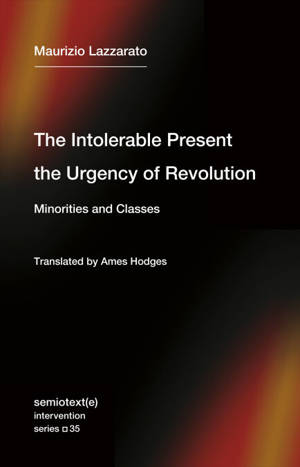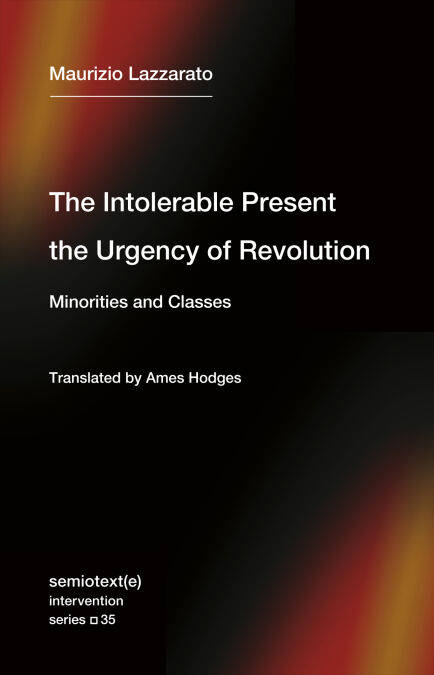
Bedankt voor het vertrouwen het afgelopen jaar! Om jou te bedanken bieden we GRATIS verzending (in België) aan op alles gedurende de hele maand januari.
- Afhalen na 1 uur in een winkel met voorraad
- In januari gratis thuislevering in België
- Ruim aanbod met 7 miljoen producten
Bedankt voor het vertrouwen het afgelopen jaar! Om jou te bedanken bieden we GRATIS verzending (in België) aan op alles gedurende de hele maand januari.
- Afhalen na 1 uur in een winkel met voorraad
- In januari gratis thuislevering in België
- Ruim aanbod met 7 miljoen producten
Zoeken
The Intolerable Present, the Urgency of Revolution E-BOOK
Minorities and Classes
Maurizio Lazzarato
E-book | Engels
€ 16,71
+ 16 punten
Uitvoering
Omschrijving
An acute reappraisal for our time of the very concept of revolution.
In order to be effective, union struggles, struggles for national liberation, worker mutualism, or struggles for emancipation were strategies that were necessarily connected to revolution. Starting from the historic defeat of the global Revolution in the mid-1970s, this book draws a portrait—whose elaboration is still lacking—of the concept of revolution. What conditions could lead us to speak of revolution once again?
In The Intolerable Present, the Urgency of Revolution, Maurizio Lazzarato ponders the fundamental importance of the passage from the historical class struggle (the conflict between capital and labor) to the more recent class struggles that open onto plural trajectories: social, sexual, gender, and race struggles. Expanding the notion of class as a rejoinder to the normative appropriation of minority politics, the revolution is returned as the horizon where subjection can be resorbed.
In this sense, Marxist, feminist, anticolonial, and postcolonial theories provide the necessary critical tools to understand the relations between classes and minorities, between the global North and the global South, and between the time of revolutions and the eruption of new subjectivities.
In order to be effective, union struggles, struggles for national liberation, worker mutualism, or struggles for emancipation were strategies that were necessarily connected to revolution. Starting from the historic defeat of the global Revolution in the mid-1970s, this book draws a portrait—whose elaboration is still lacking—of the concept of revolution. What conditions could lead us to speak of revolution once again?
In The Intolerable Present, the Urgency of Revolution, Maurizio Lazzarato ponders the fundamental importance of the passage from the historical class struggle (the conflict between capital and labor) to the more recent class struggles that open onto plural trajectories: social, sexual, gender, and race struggles. Expanding the notion of class as a rejoinder to the normative appropriation of minority politics, the revolution is returned as the horizon where subjection can be resorbed.
In this sense, Marxist, feminist, anticolonial, and postcolonial theories provide the necessary critical tools to understand the relations between classes and minorities, between the global North and the global South, and between the time of revolutions and the eruption of new subjectivities.
Specificaties
Betrokkenen
- Auteur(s):
- Vertaler(s):
- Uitgeverij:
Inhoud
- Aantal bladzijden:
- 432
- Taal:
- Engels
Eigenschappen
- Productcode (EAN):
- 9781635901825
- Verschijningsdatum:
- 24/04/2023
- Uitvoering:
- E-book
- Beveiligd met:
- Adobe DRM
- Formaat:
- ePub

Alleen bij Standaard Boekhandel
+ 16 punten op je klantenkaart van Standaard Boekhandel
Beoordelingen
We publiceren alleen reviews die voldoen aan de voorwaarden voor reviews. Bekijk onze voorwaarden voor reviews.









